Every single one of your Eurovision questions answered, including ‘why is Eurovision so political?’
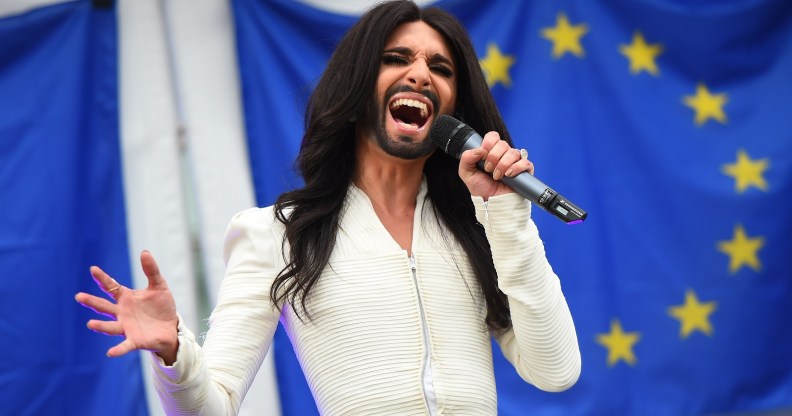
Conchita Wurst, who won Eurovision for Austria in 2014 (Getty)
Conchita Wurst, who won Eurovision for Austria in 2014 (Getty)
As the annual gay holiday approaches, LGBTQ+ people are planning to gather in their hordes to observe and celebrate the flamboyant and unabashedly queer joy of the Eurovision Song Contest 2024.
Originating in 1956, Eurovision has become an annual ritual for the queer community. The show has developed into an LGBTQ+ monolith, a showcase of Europe’s most fabulous and spectacular talent.
For 2024, this year’s contestants will compete in Malmö, Sweden after Loreen’s victory in 2023 with her hit song “Tattoo”.
How does Eurovision work: what are the rules?
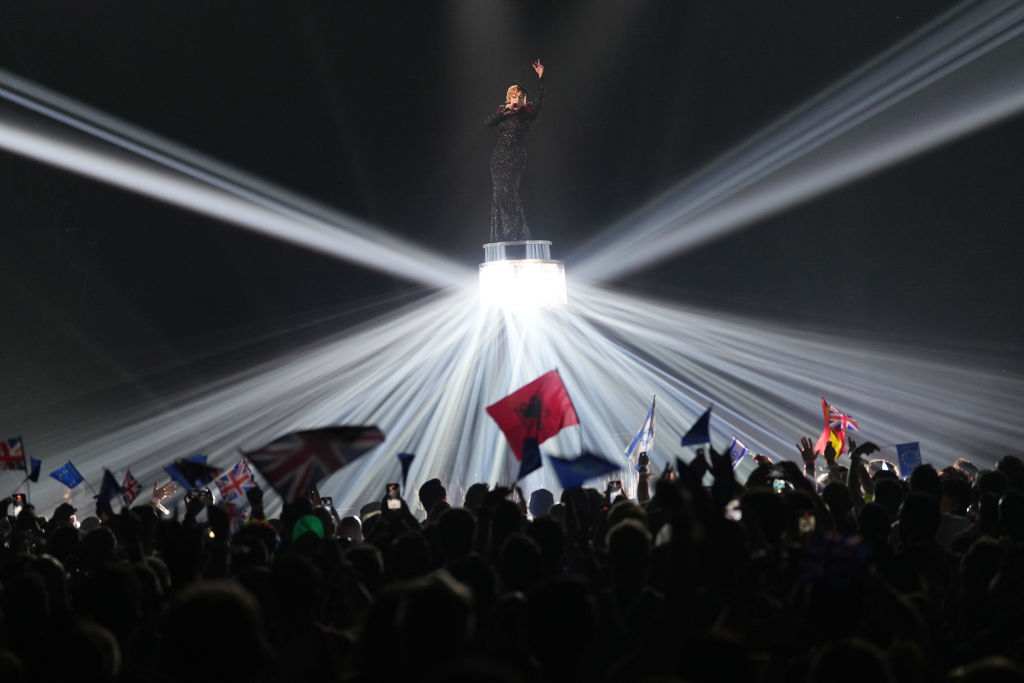
The Eurovision Song Contest is an annual songwriting competition organised by the European Broadcasting Union (EBU). Participants, who are chosen from EBU member broadcasters, represent their countries from across Europe and beyond.
Usually held in May, Eurovision consists of three live shows: the first semi-final, the second semi-final, and the grand final.
The ‘Big Five’ broadcasters (France, Germany, Italy, Spain and the United Kingdom – countries who make the biggest financial contribution towards the contest) and the host broadcaster (the broadcaster of the nation that won the previous year) are automatically entered into the semi-finals
Over the decades, the rules of the song contest have evolved. Currently, the main three rules are that the songs must be original and no more than three minutes; lead vocals must be performed live; and there are no more than six performers allowed on stage at any one given time.
How is Eurovision scored?
One of the real mysteries of our times is how exactly Eurovision is scored, but we are here to explain the procedure once and for all.
The current system, which has been operating since last year, relies on positional voting.
After all songs have been performed, each country has two sets of points with which they can deliver votes. The first set is based on the country’s jury, comprised of five music industry professionals. The second is the vote from each country’s general public which takes place during the live semi-finals and grand final
The more popular the country the higher weighted the points; the points set consists of 1-8, 10 and 12. The top song receives 12 points.
Votes are conducted through telephone and SMS voting as well as through the official Eurovision app. Out of fairness, you cannot vote for your own country – a rule first introduced in 1957.
In 2023, viewers in non-participating countries were able to vote in each semi-final and the grand final via the official Eurovision App or the Eurovision Song Contest’s voting hub. These votes are aggregated and awarded as points from an ‘extra country’ in the public vote.
What does the Eurovision winner get?
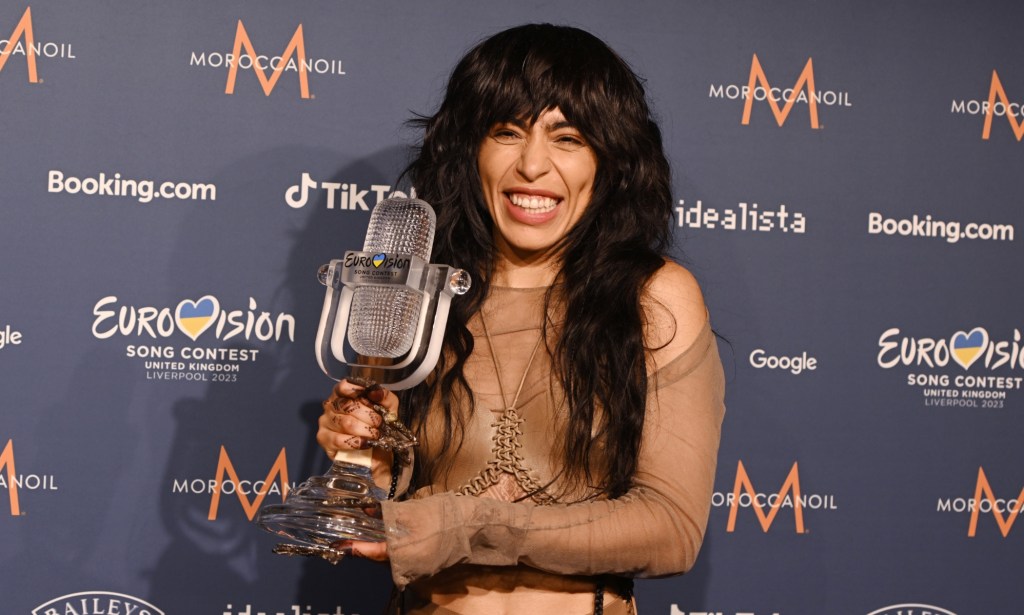
The Eurovision 2024 winner will not only get a title that will forever make them an icon in the gay community, but they’ll also receive a stunning glass microphone
Since 2008, the custom-designed trophy has been handed out to the champion. The trophy is made of solid glass by Kjell Engman of the Swedish glass art glass design company Kosta Boda.
Engman has worked at Kosta Boda since 1978 where he’s focused on art glass creations which have been exhibited around the world.
As well as the Eurovision winner taking home the mother trophy, songwriters and composers of the winning entry receive a smaller version of the trophy.
How is Eurovision funded?
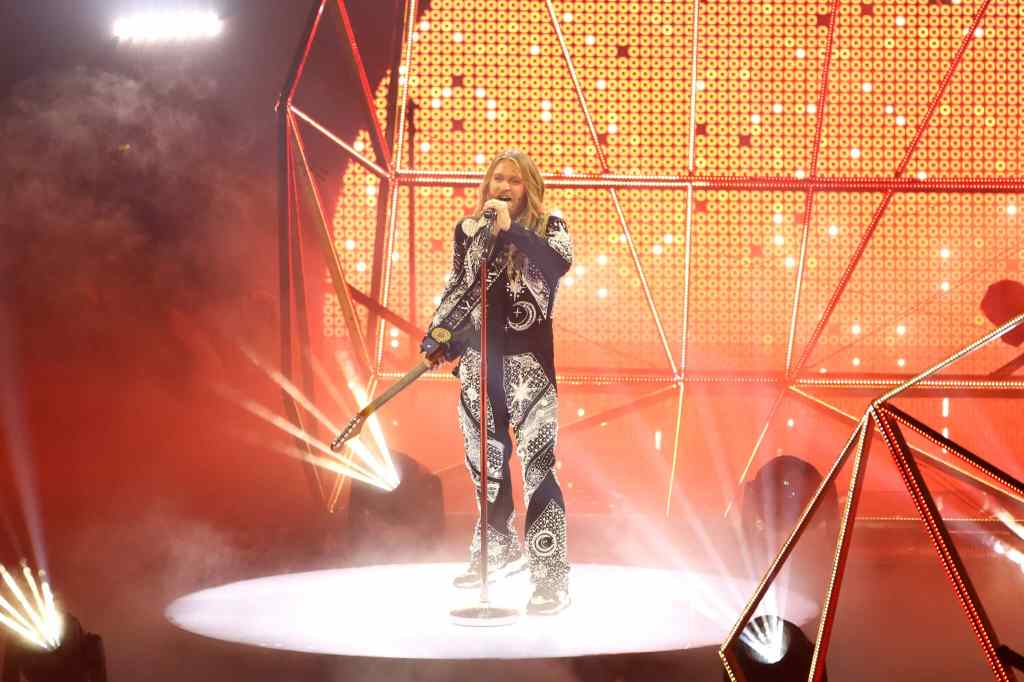
Eurovision is a non-profit event which is funded from several contribution streams.
One is the participation fee of participating broadcasters, which totals 6.2 million euros (just over £5 million). Each country’s fee is based on the solidarity principle which distributes the financial burden fairly: meaning that the richest countries donate more money.
Then there’s the contribution from the host broadcaster, which is between 10-20 million euros (£8.5-17 million) depending on available resources.
Also, the host city contributes financially or ‘in kind’, the latter which overs city expenses for city branding, side events, security, and more.
Finally, there is the commercial revenue from sponsorship agreements, ticket sales, televising and merchandise.
90% of all available funds are designated to the TV production and event organisation with 5% of funds being the budget for the EBU’s Eurovision Song Contest team and its partners.
The remaining funds go towards the participating broadcasters for reimbursement based on the budget approved by the Eurovision board.
Can Eurovision singers swear?
The lyrics, speeches or gestures performed at Eurovision are not allowed to bring the contest, show or EBU into disrepute.
Furthermore, unacceptable language is not allowed at all, at least in part due to the fact that the semi-finals and finals are broadcast live.
Breaches of these rules can result in sanctions like disqualification, fines, deduction of points, loss of accreditation, or an official EBU warning.
Can Eurovision singers be professional?
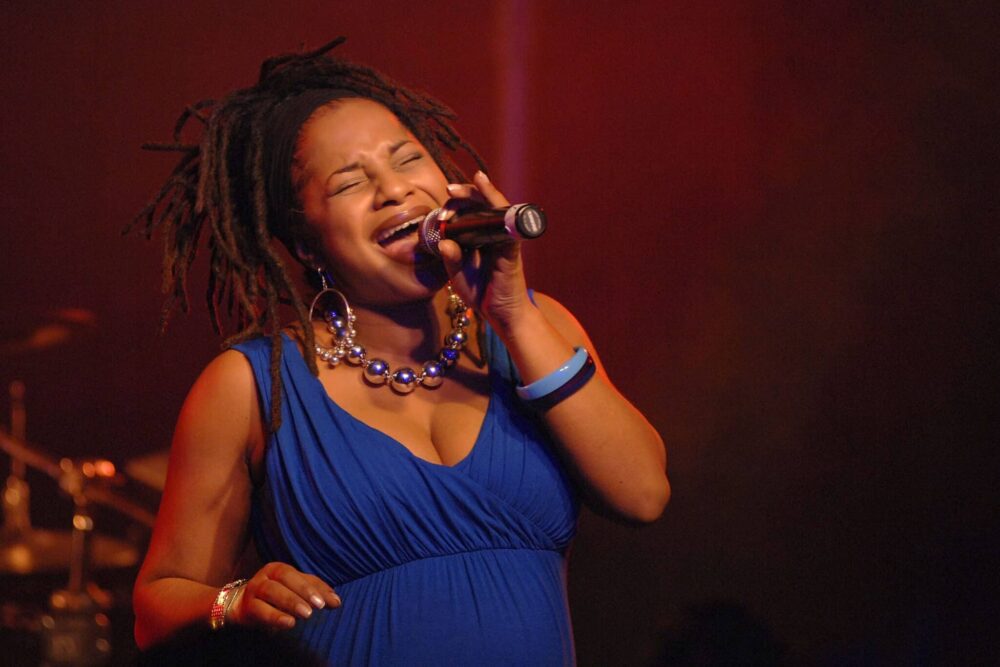
Each participating broadcaster has until mid-March to present a song and artist to Eurovision and the rules about participation are pretty broad.
There are many processes through which a song and artist can be selected, whether that be a broadcast show or an internal process. However, ultimately, anyone can enter Eurovision.
No hard or fixed rule states a famous or professional singer can’t compete. For instance, the UK has been represented at Eurovision by Cliff Richard, Olivia Newton-John, and Bonnie Tyler as well as this year’s entry: Years & Years star and hitmaker Olly Alexander.
Why does the gay community love Eurovision so much?
Through the years, Eurovision has undoubtedly become not just queer-coded, but also a safe haven for the queer community. But why do LGBTQ+ folks identify with Eurovision?
With 180 million global viewers, Eurovision plays out with bold extravagance and unashamed queerness that consistently rejects any efforts to tone it down. On this global stage, LGBTQ+ acts and stories are made visible and broadcast into the homes of people in locations where LGBTQ+ people are not accepted.
Eurovision fans, then, appreciate the show for its inclusivity of lesbian, gay, bisexual, transgender and queer contestants. With tense voting reveals, stage mishaps and singing scandals, all the messy and unexpected drama makes Eurovision the perfect show for queer audiences.
Why Is Eurovision so political?
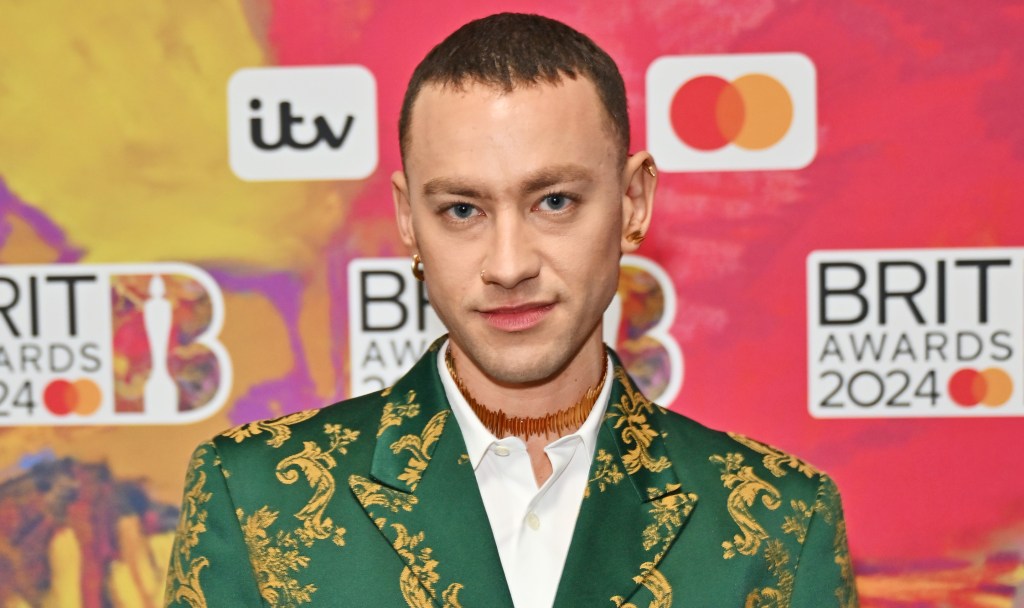
Eurovision may be a singing competition, yet the show has historically (and continues to be) embroiled in political controversy. With neighbouring countries gathering to compete, international relations become as important as vocal ability.
Despite this, Eurovision aims to be non-political; performers are warned against promoting or referring to politics but despite that, several controversial moments have occurred over the decades.
The conflict between Armenia and Azerbaijan led to numerous controversies including political messaging in competing songs, as well as a participant waving a flag of a breakaway state which broke Eurovision rules, both resulting in disciplinary action.
In 2009, the lyrics of Georgia’s song were objected to as they seemed to criticise Russian leader Vladimir Putin. The singing group refused to change the lyrics and ultimately pulled out of the competition.
Then there’s Austrian drag queen Conchita Wurst who won the 2014 contest – and proved that she was more than just “that lady with the beard” – who was called an outrage by Vladimir Zhirinovsky, head of Russia’s Liberal Democratic party.
Russia participated in Eurovision until 2022 when the country was expelled from the song contest following the invasion of Ukraine.
Israel first competed in the contest in 1973, becoming the first country from outside of Europe to enter.
A recent controversy erupted when Israel’s submitted song for Eurovision 2024 was deemed to be in violation of the political rules, as the lyrics referred to the 7 October attack on Israel by Hamas. The song name was changed from ‘October Rain’ to ‘Hurricane’ and the lyrics were modified for the competition. However, some participants have still faced calls to boycott the show to protest Israel’s involvement in this year’s event.
It’s A Sin star Olly Alexander, Britain’s representative at this year’s contest, is amongst the 2024 acts who have called for a ceasefire for Gaza.
When more more than 450 queer artists, public figures and organisations signed an open letter calling on him to withdraw from Eurovision 2024, Alexander posted a statement (alongside several other Eurovision acts) stating: “We stand united against all forms of hate, including antisemitism and islamophobia.”
“It is important to us to stand in solidarity with the oppressed and communicate our heartfelt wish for peace, an immediate and lasting ceasefire, and the safe return of all hostages.
In his singular statement on Instagram, the gay actor and singer posted that he “understands and respects” those boycotting Eurovision, but won’t do so himself.
How to watch Eurovision 2024?
The first and second semi-final draws have already taken place; participating countries now know their allocations.
The first semi-final takes place on Tuesday 7 May and the second semi-final will be broadcast on Thursday 9 May.
For the grand final, a maximum of 26 competitors will sing in hopes of winning the sparkling microphone trophy. However ahead of time, six spaces are already reserved for the host country and the members of the Big Five.
The Eurovision Song Contest Final 2024 takes place on 11 May beginning at 8pm, UK time. All the live shows will be available to stream on BBC One and BBC iPlayer.

